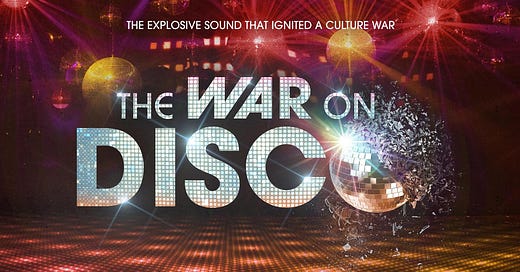BC049 – Documentary review: ‘The War on Disco’
From ‘American Experience,’ a rich retelling of one of dance music’s foundational myths
The War on Disco, from American Experience (PBS, aired October 30), dir. Lisa Quijano Wolfinger
I like the way Nate Patrin put it when he told me about this 51-minute documentary, which you can stream from the PBS website: “It didn’t tell me a lot that I didn’t know, but the footage was really effective.” That’s me, too, though I’ll modify it a bit—the footage deepened facts that I was already aware of, and offered perspectives I hadn’t considered.
Keep reading with a 7-day free trial
Subscribe to Beat Connection to keep reading this post and get 7 days of free access to the full post archives.



